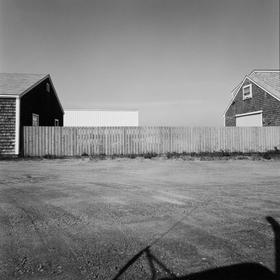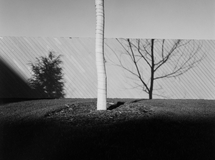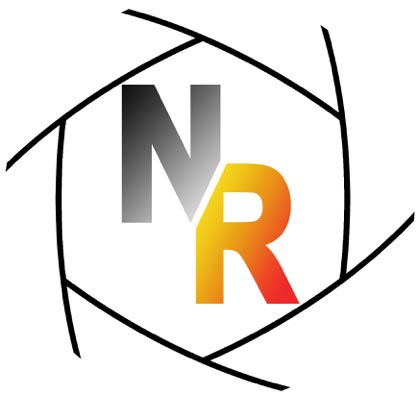Write Our Own History
This title really should be: Can we write our own history? Meaning, can we predetermine what people see from us after we die? Doubtful, but it may be part of what we're trying to do as career artists. Work to predetermine our lasting legacy (if there is any), to leave a mark somehow or to make sure what's preserved after we're gone is something we care about.
Heavy stuff.
Of course, in another time, if you were a pharaoh, had slaves and unlimited resources, you could have a pyramid built to ensure long term exposure and to guarantee the memory of you would survive for future generations. Although I do have an ego, somehow a pyramid or even a monument doesn't seem to be in the cards for me. However, to be truthful, I think I've been working my whole career to have my photography out-survive me. In modern society, we don't like to talk about our own death much, but considering its inevitability, it seems prudent to consider the "when I die" scenario occasionally and to plan what will happen to our work after we are gone. Certainly, if you're a professional artist and even if you're an amateur who's worked hard on your pictures and believe there is work of significance and/or beauty.
Uncomfortable to even contemplate, right? But, make things that will last longer than you do and the topic is essential. I believe in looking at this square on, instead of tangentially or ignoring it altogether. I think that's what many do, carry on at the same pace, ignoring all the signs of decreasing abilities as though nothing changes. And yet everything changes.
It is entirely possible that the prospect of your life's work ending up in a dumpster is fine with you. No need to read more of this post, then. But if not, read on.
What is to be your legacy? Great partner, great impact on your profession, great dad or mom, financially successful, great artist, great friend, done great work for mankind, positive effect on those around you? Will you designate your family as the recipients of your work? Will your work go to a collection (or collections), a library, a museum, perhaps your school where you taught, a historical society? I will write a more in-depth article about this in another post or two but keep the issues in mind as we discuss the issue of determining what people see of your work after you are gone.
Let's be clear, no one knows your work better than you do. No one knows how that piece you did 25 years ago that seems so out of character fits in the overall scheme or the breakthrough that it represented for you at the time. No one. If you don't order the work, organize it so that it is clear what is and is not a priority, no one will know what you did. Is it a burden or a pleasure to will your life's work to your family? Mostly the former, I believe. Now is also a really good time to get rid of work prints, secondary work that clouds rather than clarifies who you are as an artist, even if you're 35 instead of 75. Running lean is a good principle when looking at your archive. Remember that Frederic Sommer made twelve prints a year. Curious where that got him? Google the cost of his prints. More is not always better. As an example, I have 128 separate bodies of work on this site on the Gallery page. Those are all sitting in my studio as printed portfolios. I do not see that as an asset. Are they all "A" work? Are they all what I want to remain after I am gone? It is incumbent on me to establish a hierarchy, an order to all this work. My daughter Maru will inherit much of this. Is this a good thing, a kindness? No it is not. It is an incredible burden on her. What many will do is ask their kids and/or remaining partners to choose, label as such and then deal with giving, donating or arranging for appraisal and purchase of the rest of the work if it is in any demand.
This means the first step is to get your work organized. Know where bodies of work are and annotate what they are, what they mean and in what place they reside in your oeuvre. Anomalous? Exceptional? Or part of the mainstream? Although not complete, I generally have a statement that goes along with portfolios. Years ago, I started a project of writing about vintage works of mine (in my case this means my analog darkroom-based, film originated works from the '70s, '80s and '90s). Open up the box that holds, say, the work called " Fences and Walls" from 1979,
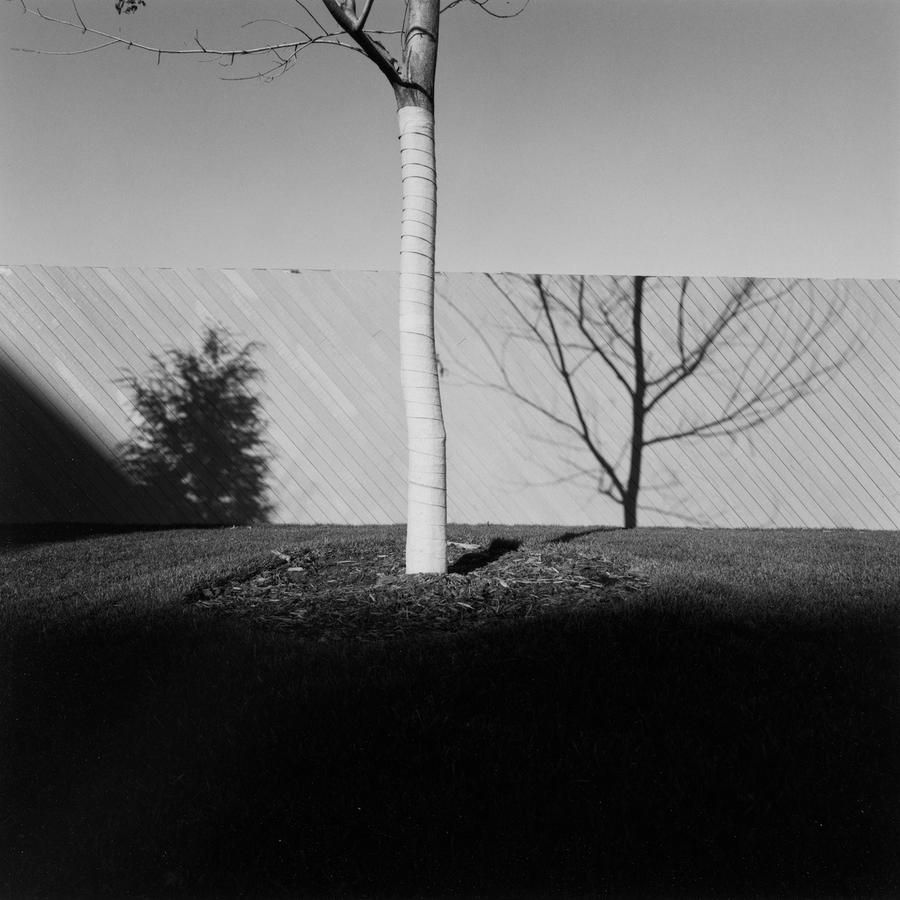 and you are confronted with an envelope that holds a single sheet of paper that has a paragraph placing the work in context, dating it and explaining intention and perhaps an exhibition history, if there is one. And yes, it also states the paper I used in making the prints, the "archivalness", meaning the kinds of processing and toning I did. If I'd been more together I would have stated where the negatives were stored so that they could easily be retrieved. Sadly, that never happened.
and you are confronted with an envelope that holds a single sheet of paper that has a paragraph placing the work in context, dating it and explaining intention and perhaps an exhibition history, if there is one. And yes, it also states the paper I used in making the prints, the "archivalness", meaning the kinds of processing and toning I did. If I'd been more together I would have stated where the negatives were stored so that they could easily be retrieved. Sadly, that never happened.
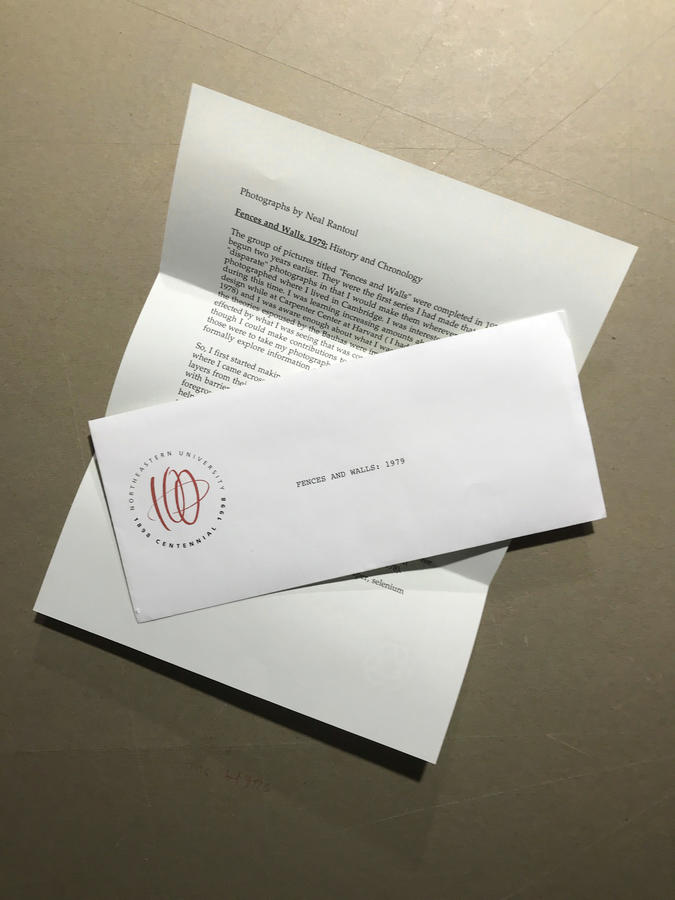
Call all this presumptuous or just good sense? Your call.
Before I close, lest you think this is just the incoherent rambling of an old man, consider this. Say you are young and somewhat new to this "art as a career" thing but know this is what you wish to do. You have many challenges common to us all. But you also have the advantage of not having made that much work. This means organizing now makes not only a great deal of sense, it is also much easier. One more: if you are or become successful this presumes you sell your work. Do you document this, have some record somehow of what sold? In photography we often have the ability to "replicate" the work sold. Do you do that? Duplicate a piece sold so that it is back in your inventory?
Of course, we are not in control of our own history. But we can at least take something that has huge meaning and significance in our lives and bring it to a place that honors it, respects the years of hard work and thought that went into making it, stores it, labels it and possibly places it so that it can be found, seen and appreciated understood after we are gone.
